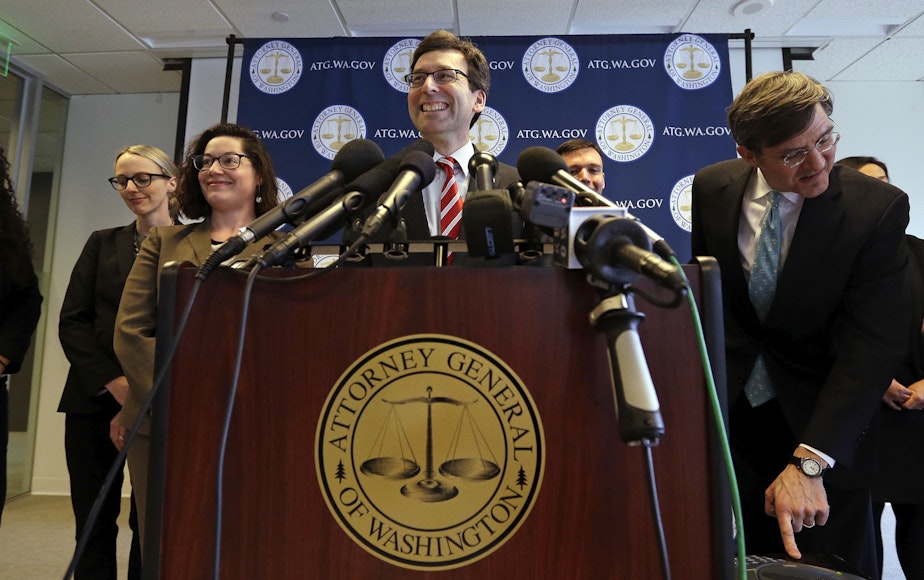Washington state to Trump: Nope, travel ban still unconstitutional

The state will continue to press its legal case against President Donald Trump’s temporary travel ban, Washington State Attorney General Bob Ferguson announced today.
Speaking to reporters, Ferguson said his office is asking a federal judge to extend an earlier temporary restraining order to the president’s revised order on immigration and travel.
"In our view, this executive order contains many of the same legal weaknesses as the first and reinstates some of the identical policies as the original," said Ferguson.
On Monday, Trump signed a new executive order and rescinded the previous order. The Trump administration argues that the new order supersedes the old version, therefore the restraining order is defunct.
The state of Washington’s challenge to the first executive order and temporary travel ban was the most successful legal challenge of the President’s action, leading to a federal judge’s ruling that put the ban on hold nationwide.
Sponsored
Ferguson told NPR that he’s confident Washington state can successfully show the president's order harms the state and its residents.
“We’ve been in communication with colleges and universities and businesses here in Washington state,” Ferguson said. “We’re confident that we’ll be successful in asserting standing, in other words … we have a dog in the fight so to speak.”
One of the key constitutional questions raised in Washington’s state lawsuit is whether the executive order illegally discriminates on the basis of religion or nationality. The original travel ban temporarily halted entry to the U.S. for people from seven majority-Muslim countries; the new order reduces the list to six, with Iraq removed.
White House officials have consistently said the the order is not a "Muslim ban" but a policy to improve national security and ensure that people from certain countries of concern are properly vetted before they're allowed entry to the U.S.
“The test is whether or not a motivating factor behind the travel ban was an improper religious bias against Muslims,” Ferguson told NPR. “As long as that is the case… then yes, anything he tries to do around travel bans would be constitutionally difficult for him to achieve. That’s the test, and that’s what we’re seeking.”
Sponsored
Ferguson’s office also plans to file an amended complaint on the underlying merits of the case next week.
Stewart Jay, emeritus professor of law at the University of Washington, sees Ferguson's request to extend the restraining order as a way to buy time until the new complaint is filed.
Jay anticipates the new executive order will be more difficult to challenge due to its narrower scope, although questions about presidential power and motive of the ban are still unsettled.
“That's a question of really monumental constitutional importance,” Jay said. “It really does go to the degree of independence the president has under the Constitution.”
In what Jay calls ‘an ordinary era’, he said it would be tough to challenge the president’s determinations on immigration because the constitution allows for broad authority.
Sponsored
“The bizarre circumstance here is that Donald Trump has made overt assertions about Muslims being banned from coming into the country as something he wanted to do as the president,” Jay said.
This situation is unprecedented, in Jay's view, and the courts will wrestle hard with this question, if they decide to take it up.
Editors' note: This was a developing story and has been updated with additional information since its original publication.
Read highlights tweeted live from the Attorney General's press conference:


